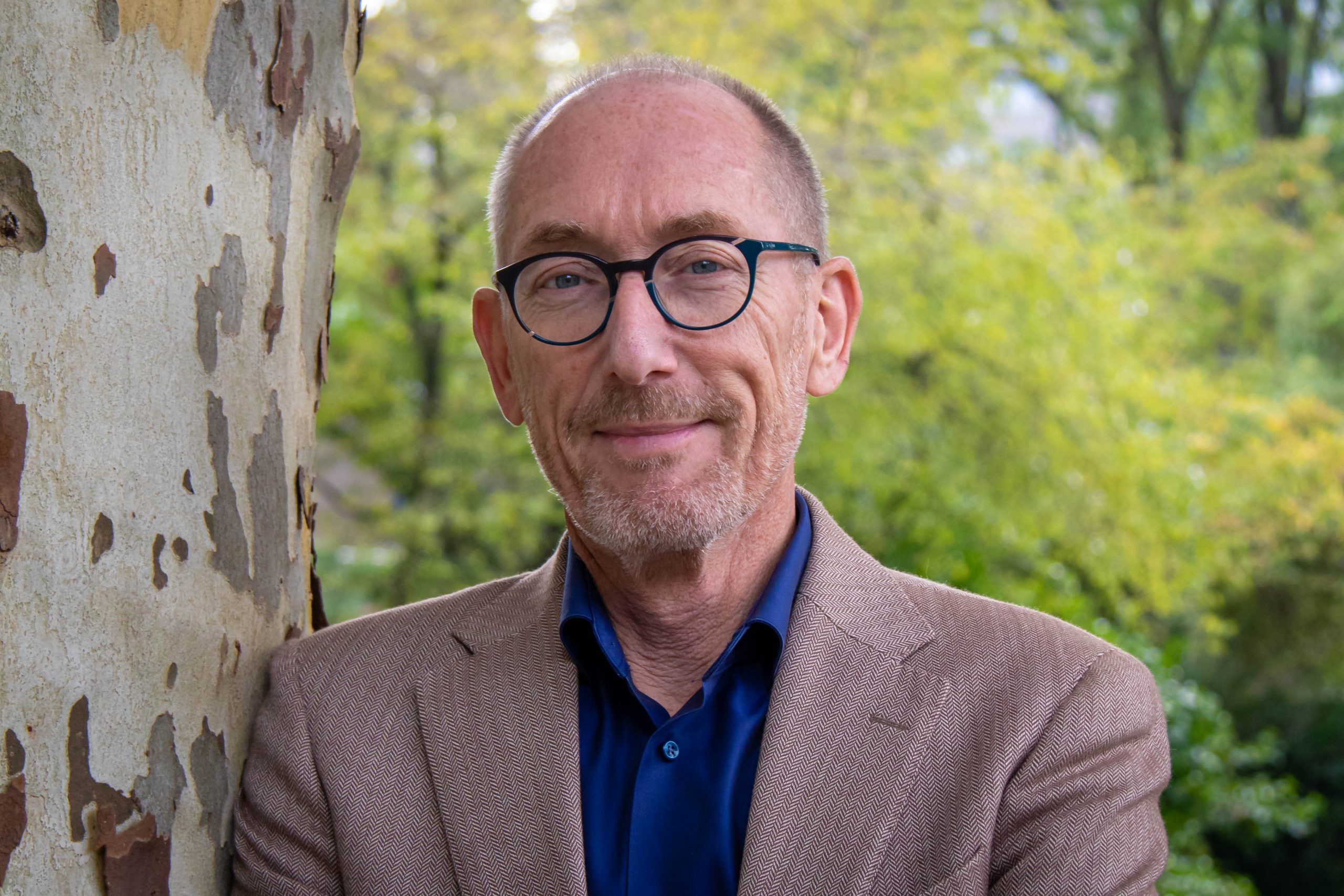Student accommodation and the growth of TU Delft are returning themes in the election manifestos of Delft’s political parties. A series of interviews with party candidates.
Bert van der Woerd: “If TU Delft wants to grow, it also has to think about the consequences.” (Photo: ChristenUnie Delft)
Party leader Bert van der Woerd was the sustainability advisor for the nationwide ChristenUnie (Christian Union political party) when he was asked to become involved in politics in Delft six years ago. He thought it a good idea. Before he realised what was happening, he had climbed the ranks of the ChristenUnie in Delft. “I then had to ask my employer if I could reduce my working hours.”
You have ideas for all sorts of types of housing. What would you do about the shortage of student rooms?
“We would like TU Delft to build more accommodation on its own land and we will approach the surrounding municipalities. Rijswijk is already on our agenda, and we will also approach Pijnacker-Nootdorp. It sounds far away but is actually right next to the TU Delft area. And we would like to see more mixed housing in residential neighbourhoods such as senior residences, family homes and student accommodation mixed together.”
The residents of the Wippolder neighbourhood have problems with students though. How can you avoid this in neighbourhoods where you want to build more student accommodation?
“By making sure that there is a good mix of different housing types. I live in Voorhof-West. If I look out of my window, I see that of the 24 houses in one street, seven have been divided into rented rooms. This is not desirable as there are too many students living close together. This is what happened to Wippolder where whole streets have either been divided up into separate rooms or have been divided up into flats. We believe that if you create a good balance between different types of housing, you will promote social cohesion.”
‘We need to reduce the consumption of heating and energy‘
Many of the election programmes centre around the growth of TU Delft. How do you envision the future of TU Delft?
“All developments have their limits. When I studied at TU Delft in 1976, there were ten thousand students. That number is now almost three times more. That is a lot given Delft’s population of 103,000. We cannot put a cap on TU Delft, because that is not the job of the municipal council. But if TU Delft wants to grow, it also has to think about the consequences. TU Delft currently has a lot of international students and I am happy that it is so popular. But it could also require students to master Dutch at B2 level. This would make it less popular without having to refuse students.”
Tell us one thing that you managed to do for students or young people last year.
“The ChristenUnie and Stip submitted the Routekaart naar onzelfstandige studentenhuisvesting (roadmap to non-self-contained student accommodation, in Dutch) motion in which we argue for firmer agreements to be made for building communal student accommodation. We view this as an important means of tackling loneliness.”
If you had a big pot of money, what would you spend it on?
“On climate adaptation. We need to reduce the consumption of heating and energy. So the money must go to insulation programmes for housing and to the energy transition. You constantly hear that people cannot afford to pay for this themselves. This needs to change as even if we could solve every other problem except the climate, we will still have a huge problem.”
-
For this interview series, the editors of Delta approached all participating Delft political parties by email, sms, phone, Instagram, LinkedIn and Facebook. Despite repeated contact attempts, we did not succeed in scheduling interviews with Bij1Delft, Onafhankelijk Delft and Volt. Read the election programmes of all participating political parties in Delft via this link (in Dutch).
Do you have a question or comment about this article?
a.m.debruijn@tudelft.nl


Comments are closed.